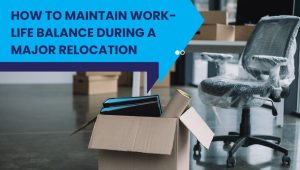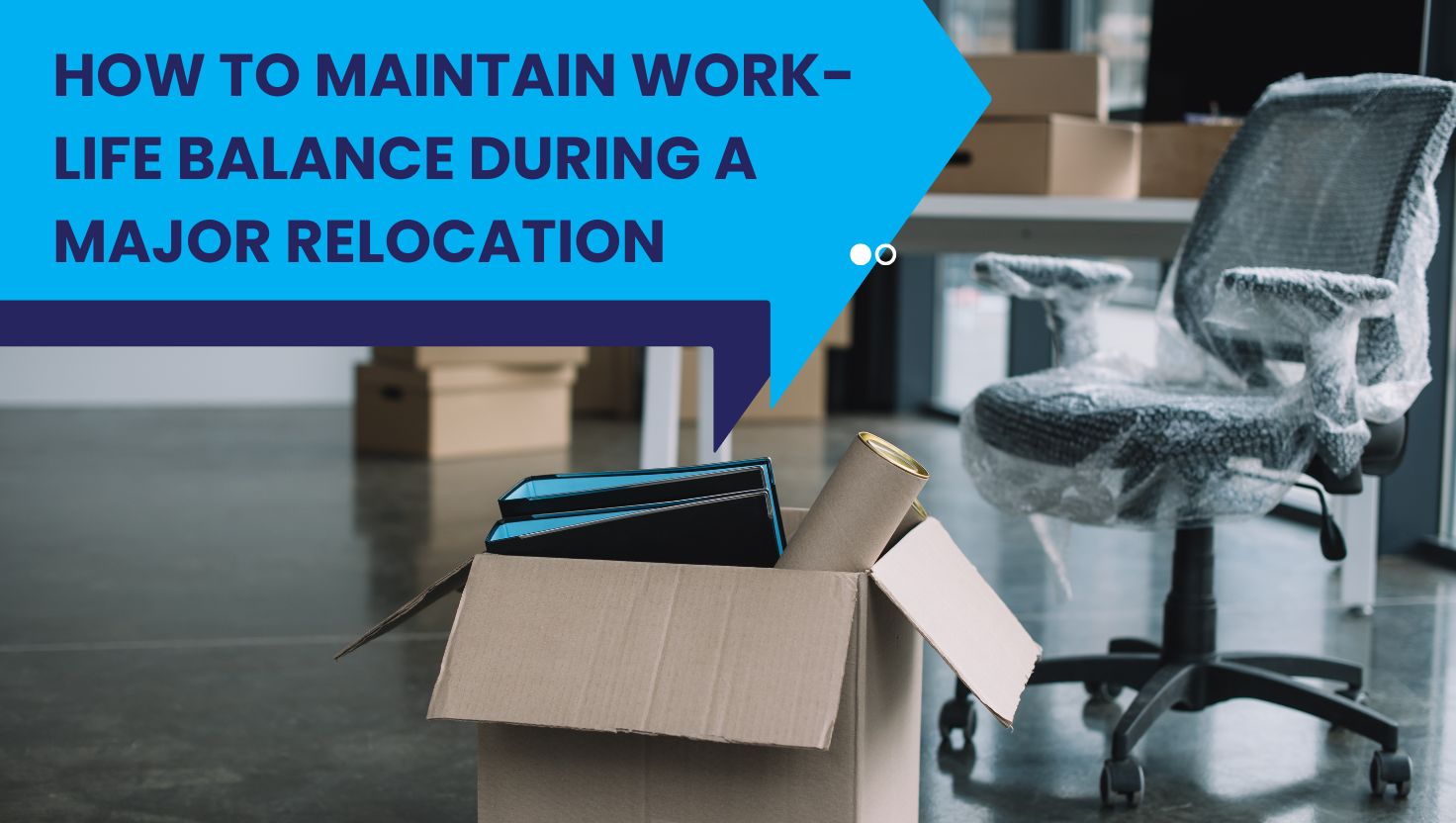
Moving abroad or even across the country can be an exciting new chapter — new surroundings, new opportunities, and perhaps even a fresh start. But alongside the thrill comes a lot of disruption. Between managing logistics, saying your goodbyes, and adapting to a new environment, it’s easy for your work-life balance to get completely out of sync.
If you’re juggling professional commitments while planning a relocation, it’s crucial to take deliberate steps to stay organised and preserve your mental wellbeing. Here’s how you can do just that.
1. Plan Early and Set Realistic Expectations
The earlier you begin planning your move, the less overwhelming it will be. Create a detailed relocation timeline that includes key milestones such as giving notice at your current residence, arranging shipments, and updating important documents.
Break each stage into smaller, manageable tasks — this prevents burnout and helps you maintain control over both your work and personal life.
Be realistic about what you can achieve each day. It’s okay to scale back on extra projects or overtime at work while preparing for a move. Being upfront with your employer about your situation can help you set clear boundaries and avoid unnecessary stress.
2. Keep a Structured Routine
Relocations can throw your usual schedule into chaos. Maintaining a basic daily routine — waking up at the same time, eating balanced meals, and designating clear work hours — can bring a sense of stability amid the uncertainty.
Try to protect your evenings or weekends for personal downtime. Whether you’re packing, handling paperwork, or preparing for departure, set a clear cut-off time each day. This separation between “work mode” and “moving mode” helps keep you grounded.
3. Delegate Whenever Possible
You don’t have to do everything yourself. Outsource what you can, especially when it comes to logistics. Professional relocation companies can handle everything from packing and shipping to customs clearance and delivery — freeing up your time and mental energy for more important matters.
If your employer is providing relocation support, make full use of it. If not, consider hiring services that simplify the moving process. Delegating to experienced professionals ensures that you can focus on work and personal adjustments rather than the stress of coordinating every minor detail.
4. Prioritise Your Health and Wellbeing
Amid the rush of packing and deadlines, self-care often takes a backseat. However, it’s precisely during such transitions that your wellbeing matters most.
Get enough sleep, stay hydrated, and try to maintain some form of physical activity, even if it’s a quick walk in between tasks. Mindfulness or meditation apps can also help you manage anxiety and keep your thoughts centred.
It’s also important to nurture your social connections. Spend quality time with loved ones before you move, and once you arrive, look for ways to build a new support network — joining community groups or expat circles can make a big difference in how you adjust emotionally.
5. Set Clear Boundaries with Work
If you’re working remotely or continuing your role during the relocation, make sure your colleagues and clients know your availability. Communicate your moving schedule in advance so expectations are managed.
Avoid checking work emails late at night or taking calls during personal time — burnout can easily creep in when the boundaries blur.
When you arrive at your new location, give yourself time to settle before jumping back into a full work schedule. Even a few days of breathing space can help you reset and improve long-term productivity.
6. Focus on the Positives
Moving can be emotionally draining, but it’s also a valuable opportunity for growth. You’ll learn new skills, adapt to change, and develop resilience — all of which can enhance your professional and personal life.
Remind yourself why you’re making this move. Whether it’s for career advancement, family, or lifestyle improvement, focusing on your long-term goals can make the temporary stress feel more manageable.
7. Use Technology to Stay Organised
There are countless tools that can help streamline your move. Use shared calendars or project management apps to coordinate tasks, set reminders for key dates, and track your shipments.
These tools can also help you balance work commitments, allowing you to visualise how much time you can realistically allocate to relocation tasks each day.
Simple digital organisation can prevent chaos and reduce the feeling that you’re constantly behind schedule.
8. Remember to Celebrate Small Wins
Every step you complete — securing your new home, shipping your belongings, or even finishing a stressful day — is worth acknowledging. Celebrating small wins helps you stay motivated and maintain a positive mindset throughout the process.
A relocation isn’t just about changing your address — it’s about creating a better environment for yourself and your work. By recognising your progress along the way, you’ll keep the journey fulfilling rather than exhausting.
Balancing work and personal life during a relocation isn’t easy, but with structure, communication, and support, it’s absolutely achievable.
Taking care of yourself and setting healthy boundaries ensures that you arrive at your new destination ready to thrive — both professionally and personally.
At CM Relocation, we understand how stressful moving can be, especially when you’re managing work at the same time. That’s why we offer comprehensive moving solutions designed to make your relocation as seamless as possible — from packing and shipping to safe delivery at your new home. With expert coordination and personalised service, we help you stay focused on what truly matters: settling comfortably into your next chapter.
